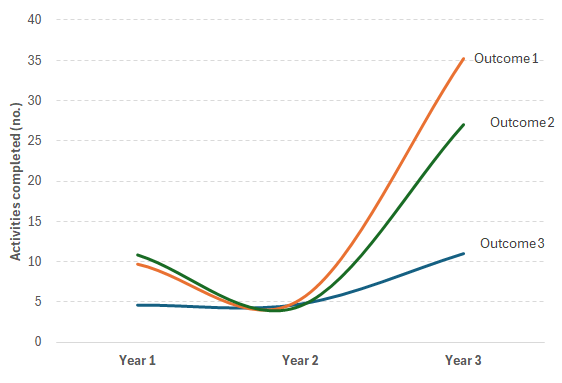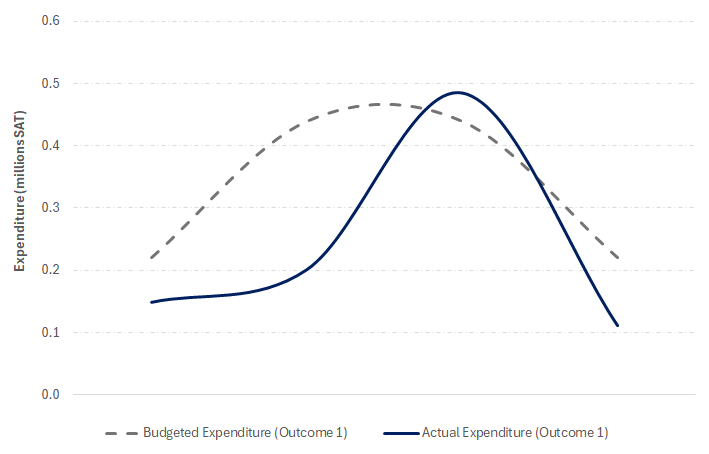Economic analysis & Research
Strengthening Disability-Inclusive Public Financial Management Through Evidence-Based Program Evaluation
Enhanced evidence-based policy design for a major Pacific disability inclusion program through rigorous outcome harvesting methodology and public financial management analysis.
Key achievements and results
- Applied economic expertise to evaluate disability inclusion in national budgeting processes, providing clear evidence of program effectiveness in strengthening CRPD implementation.
- Developed comprehensive evaluation methodology combining Outcome Harvesting with economic analysis to assess both policy changes and practical implementation of disability-inclusive public financial management.
- Received strong client commendation for technical analysis and practical recommendations that directly informed the design of the program’s next phase.
Problem
A major disability inclusion program in a Southeast Asian country required comprehensive evaluation of its effectiveness in supporting the Convention on the Rights of Persons with Disabilities (CRPD). The program lacked clarity on actual outcomes achieved, with limited understanding of how interventions had influenced disability-inclusive policymaking, budgeting processes, and resource allocation at the national level. Traditional monitoring approaches failed to capture both intended and unexpected outcomes, particularly around public financial management reforms and budget processes that support disability inclusion.
Approach
I supported the development and implementation of a rigorous evaluation methodology combining Outcome Harvesting with comprehensive economic analysis. Working with the evaluation team, I examined how program interventions influenced disability-inclusive public financial management, budget processes, and resource allocation. The approach emphasized systematic evidence collection to assess both policy changes and practical implementation of CRPD principles across government systems, with particular focus on financial and economic dimensions of disability inclusion efforts.
Evaluating the impact of programme implementation on impact

Results
The evaluation provided clear evidence of how the program had influenced disability-inclusive policymaking, budgeting, and CRPD implementation within the country. Through systematic analysis of financial and economic data, the assessment revealed both intended and unexpected outcomes in disability inclusion efforts, demonstrating measurable improvements in how governments allocate resources for disability services. The findings directly informed the design of the program’s next phase, ensuring future interventions would strengthen disability-inclusive public financial management based on concrete evidence of what works in practice.
Using government administrative and financial data to evaluate programme success

related case studies

Work with me
Explore how I can help you tackle your most pressing public policy and analytical challenges.
